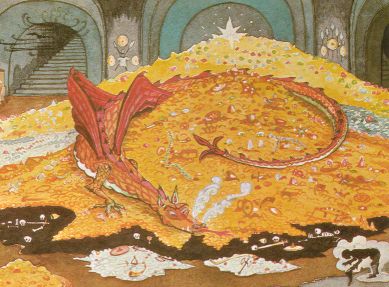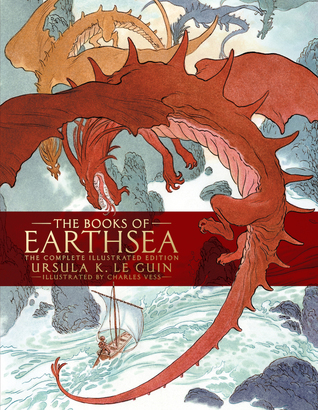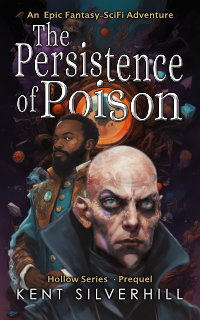Centuries ago, maps labelled the unknown with “Here be Dragons”. We fantasy readers love dragons. After all, who can resist the majesty, power and cunning of an oversized, fire-belching, winged lizard? In modern tales dragons tend to be intelligent, magical, powerful, rather fond of gold and big. I mean really big – big enough for one to carry you on its back while it flies over your enemies and razes them to ashes.

It wasn’t always that way.
Early dragons, like the one in the illustration of St. George killing a dragon, aren’t that impressive to our eyes today. St. George’s dragon isn’t particularly intelligent or magical, it just enjoyed eating maidens.
It certainly isn’t like the modern day big as buses, fire breathing beasts we’ve grown used to.
For comparison, below is a much scarier, scalier and altogether nasty fellow from the Game of Thrones TV series.
Here be dragons in Game of Thrones

I think it’s safe to say nowadays we’re more likely to be awed by Daenerys Targaryen’s majestic, powerful dragons than one being speared by a bored-looking chap on horseback. Saint George’s reptilian adversary doesn’t look large enough to eat a fish and chips supper, never mind a strapping princess. And don’t get me started on its tiny wings which, let’s face it, wouldn’t lift a small tub of margarine.
For our purposes, we’re going to concentrate on dragons in literature from the last hundred years or so. What follows is a list of book titles and the dragons contained in their pages.
1. The Hobbit

Although Tolkien wasn’t the first twentieth-century writer to feature a dragon in his stories, Smaug from The Hobbit has to be the earliest dragon to set pulses racing. He’s cruel, vicious, magical and has a hoard of treasure which the other characters in the story are keen to get their hands on. It’s interesting how the 2012 – 2014 Hobbit movies (directed and written by Peter Jackson) make Smaug much bigger than he was in the original illustration painted by Tolkien himself.
2. The Earthsea Cycle

Ursula K. Le Guin’s Earthsea books portray more than one dragon. They go from cruel, greedy hoarders of treasure, similar to Smaug, to more noble beings who speak the ‘Language of Creation’. They even share their ancestry with humans and, it turns out, certain humans (women only) can turn themselves into dragons. The eldest dragon is called Kelessin, but there are many others in the books. They are ancient, wise, selfish, capricious, terrifying, beautiful, and powerful. Not only that, but the series also deals with patriarchy, rites of passage and how not to be a bad person. Go on, dive into the series to learn more.
3. Dragonriders of Pern

Strictly speaking, Anne McCaffrey’s Dragonriders of Pern books are more in the realms of science fiction than fantasy because the dragons are genetically modified fire-lizards. Let’s not split hairs. They’re dragons and they do all the dragony things we expect. The humans in the novels are descendants of interstellar colonists from Earth, with all the foibles we suffer in our societies today. Without giving too much of the plot away, the dragons are the only means by which humans can survive the attacks inflicted on them by the worlds in which they live.
The Dragonriders series isn’t where it all ends. McCaffrey went on to write many more books about Pern and Dragons. You can find a list of them here.
4. Discworld

There are several types of dragon in Terry Pratchett’s Discworld series – such as the fire-breathing, nasty and untrustworthy Noble Dragon (Draco nobilis) – but the ones that make the greatest impression are swamp dragons (Draco vulgaris). Unlike other dragons on this post, swamp dragons are small and fly badly. They also have a tendency to explode if they suffer indigestion – a not uncommon ailment in these creatures due to their complex digestive systems. The upper classes of Ankh-Morpork breed swamp dragons and enter them in competitions. For sheer silliness, swamp dragons deserve a place in our hearts.
Note: The large dragon featured on the Guards! Guards! book cover is a Noble Dragon. The little ones streaking past are Swamp Dragons.
5. Realm of the Elderlings

When it comes to constructing the entire life cycle of dragons, none does it better than Robin Hobb. In her Elderlings series, the dragons have an extraordinarily complicated existence. They hatch and spend their larval stage in the sea. At the beginning of the series humans call the dragon larvae sea serpents and don’t know that, given the right conditions, a sea serpent will mature into a dragon complete with ancient knowledge. No dragons have matured for centuries because a natural disaster has changed the landscape. The larvae can no longer find the river they need to swim up to where they build their cocoons in order to metamorphose into adults. Hobb’s dragons are as scary, intelligent and unpredictable as we expect. And they are not all fond of humans even though, in the distant past, dragons and humans coexisted and even mixed their essences which resulted in scaled humans known as Elderlings.
The five above are my personal favourites. Let me know what your favourites are in the comments.
Don’t forget to celebrate Dragon Day on January 16 every year. And I mean DON’T FORGET. If you annoy a temperamental fire-breathing creature, it can really ruin your day.
Dragons haven’t got around to appearing in my books. Yet. Hold on to your hat.


Leave a Reply